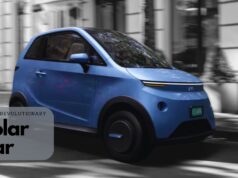Maruti Suzuki, India’s top automaker, is stepping into the electric vehicle (EV) market with innovative plans and eco-friendly strategies. The company aims to transform the EV industry in India by launching exciting models, building infrastructure, and making green mobility accessible to all. Let’s explore Maruti Suzuki’s plans, upcoming models, and the pros and cons of their EVs.
Launch of the eVX Electric SUV
At the Auto Expo 2023, Maruti Suzuki revealed its first electric SUV, the eVX. This marks a big step for the company in the EV space.
Key Features of the eVX:
- A 60kWh battery providing a range of up to 550 kilometers.
- Stylish and modern design with advanced safety features.
The eVX, which stands for “Emotional Versatile Cruiser,” is set to launch in January 2025. This SUV will be available in India and exported to Europe and Japan, reflecting Maruti’s global ambitions.
‘e For Me’ Strategy and Infrastructure Expansion
Maruti Suzuki has introduced the ‘e For Me’ strategy, focusing on promoting EVs and creating the infrastructure needed to support them.
Highlights of the Strategy:
- Charging Network Expansion:
- Fast-charging stations every 5 to 10 kilometers in India’s top 100 cities.
- Partnerships with energy providers to make charging easy and convenient.
- Battery Rental Services:
- Aimed at reducing range anxiety and making EV ownership more affordable.
- Affordable EVs:
- Focus on using locally manufactured parts to keep costs low.
India as a Global EV Manufacturing Hub
Maruti Suzuki’s parent company, Suzuki Motor Corporation, plans to make India a leading hub for electric vehicle production.
Key Plans:
- $4 Billion Investment: Expanding production capacity and launching new models.
- Exports to Global Markets: Indian-made EVs will be exported to countries like Japan and Europe.
- Collaboration with Toyota: The e VITARA SUV will be produced in Maruti’s Gujarat plant and supplied to Toyota. This partnership highlights their commitment to green mobility.
The Growing EV Market in India
India’s EV market is growing rapidly, and Maruti Suzuki is set to play a major role. In 2024, EVs made up 2.5% of car sales in India, with predictions to reach 30% by 2030.
Maruti Suzuki’s Future Goals:
- Launching 12 new EV models by 2025.
- Introducing premium EVs with longer ranges and fast charging.
- Designing EVs suited for Indian conditions, like rough roads and hot weather.
Pros of Maruti Suzuki EVs
- Long Driving Range: Models like the eVX offer up to 550 km, ideal for long trips.
- Affordable Prices: Locally made components ensure competitive pricing.
- Trusted Brand: Maruti Suzuki is a household name in India.
- Wide Service Network: Reliable service is available across the country.
- Environmentally Friendly: EVs help reduce pollution and dependence on fossil fuels.
Cons of Maruti Suzuki EVs
- Limited Availability: New EVs may launch only in big cities at first.
- Charging Infrastructure: India’s EV charging network still needs significant growth.
- Battery Recycling Issues: Managing and recycling old batteries is a challenge.
- High Competition: Rival brands like Tata Motors offer strong competition.
- Range Anxiety: Some buyers may still worry about finding charging stations.
Conclusion
Maruti Suzuki’s move into the EV market reflects its dedication to innovation and sustainability. With affordable models, better infrastructure, and a strong focus on local production, the company is ready to lead India’s shift to electric mobility.
By addressing challenges like charging infrastructure and battery recycling, Maruti Suzuki is shaping a greener future. Their EVs promise to offer a perfect mix of affordability, advanced technology, and trust. As India embraces electric mobility, Maruti Suzuki’s EVs are set to make a big impact.















Comments are closed.